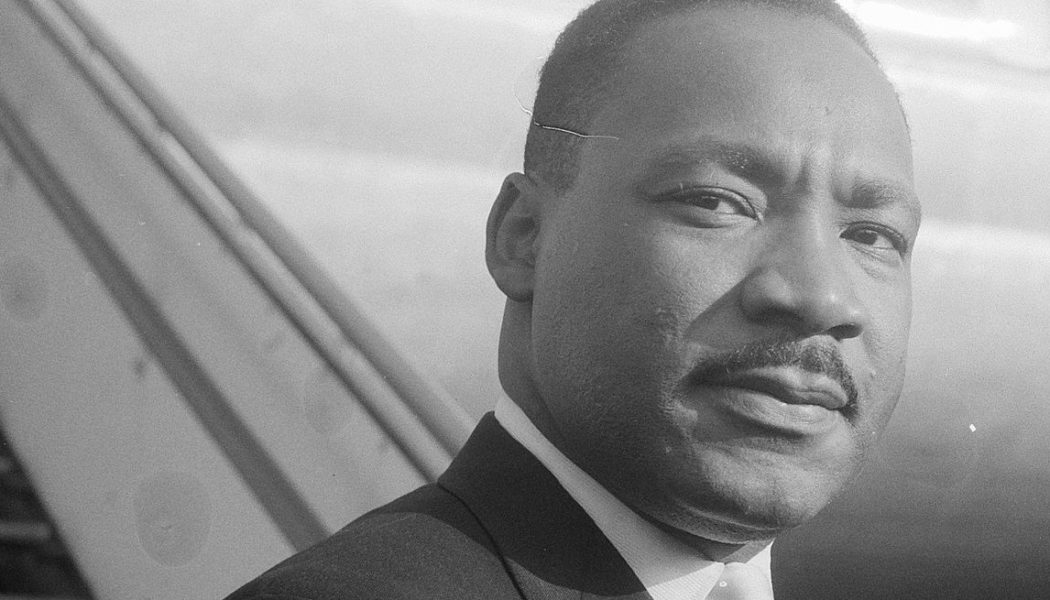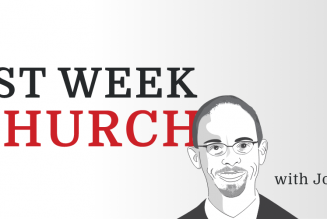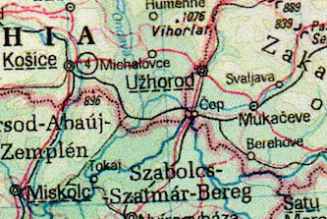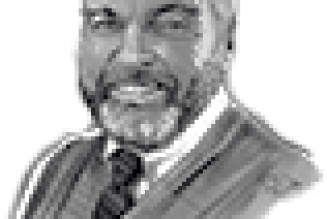
This is excerpted from a larger piece appearing in the Winter 2021 “Freedom” issue of Evangelization and Culture, the quarterly journal of the Word on Fire Institute. You can learn more and become an Institute member today, to read more pieces like this.
Take my love, take my land
Take me where I cannot stand
I don’t care, I’m still free
You can’t take the sky from me…
[i]
There is a quote attributed to Søren Kierkegaard that, like millions of unsourced quotes that litter the internet, is a neat (if somewhat oversimplified) paraphrase: “People demand freedom of speech as a compensation for the freedom of thought, which they seldom use.”[ii]
We know that we do not use we will lose; what we do not attend to will default to something less preserved. The Second Law of Thermodynamics all but guarantees it. Asphalt roadways untraveled will eventually revert to wilderness; hot coffee left unheated will cool; muscles gone unused will weaken and, eventually, shrink and atrophy. We must disabuse ourselves of the notion that our neural synapses”—falling into disuse out of incuriosity, laziness, social intimidation or the self-doubt that often roots our self-censoring—will continue to fire brightly, permitting us to reason well, grasp insights quickly, or make persuasive arguments once we have willfully stopped exercising them in order to feel safe.
And this does happen. Who among us has not instinctively tapped out a perfectly reasonable Twitter response to some bizarre modern claim about simple biology and then thought better of it, hitting the delete button rather than sending it on because we just don’t want the inevitable hassle that will ensue, replete with charges of hatefulness, prejudice, inhumanity, ideological agendas, and intellectual infirmity? After we’ve done that a few dozen times, we don’t only stop responding online; we stop responding in our heads. Exhausted, we let the whole issue go, let others who still have a bit of energy speak for us, and eventually think for us, while we become a smaller presence, with smaller thoughts, engaging a smaller number of people—shrinking our minds along with our world until only entropy shows any vigor at all. Without a cleansing wave of engagement, the prevailing ideas of the age will simply lay upon the sand like unmovable, new-defined, and self-proving oceanic detritus. And we will have consented to it, will have permitted the foundational support and insurer of our every human freedom to shut down and go dark, because to do otherwise has become so damned difficult and personally risky, and because, as James Baldwin said in his 1960 address to San Francisco State College, “people are as free as they want to be.”[iii]
We in the West have enjoyed our freedoms to think and to speak so well, and for so long, that perhaps we have become careless with them, lost touch with how dear and delicate they really are.
While recently reacquainting myself with Martin Luther King’s “Letter from a Birmingham Jail,” I marveled at the persuasive power of his passionate, learned prose—nearly lyrical in some spots—and the undeniable strength of his thoughts, so intellectually on-point, and confidently articulated. The whole letter is, of course, an instructive reminder of what freedom means, and how much work is still before us on matters of race and the dignity of the human person. But there was one line of King’s—a small personal reference—that jumped out at me. Having expressed disappointment at his nonviolent philosophy being decried as “extremist” by Christian critics who should have known better, he wrote: “But as I continued to think about the matter, I gradually gained a bit of satisfaction from being considered an extremist.”[iv]
Emphasis mine. The phrase struck me as vastly important to King’s circumstances. While imprisoned, castigated, and let down by the very people he believed would, by virtue of shared faith understand and support his righteous quest, Dr. King was nevertheless a man free and unshackled, because he was demonstrably still pursuing truth, still trying to understand the world and people around him, and the times. He was still thinking, and as long as he was, he was capable of transcending the moment, slipping through the unjustly locked bars, and continuing to build the movement, insight by insight, consideration by consideration, line by written line.
The Reverend Dr. Martin Luther King sat in a jail cell and permitted his mind to soar, unleashing it from the place where he was physically constrained and sending it forth, like an ark-trapped Noah releasing a dove to find a fresh landing. Such action has shaken the world for the better; it has brought us St. Paul’s prison epistles; it has inspired Aleksandr Solzhenitsyn’s Gulag Archipelago; Thomas More’s letters as he awaited execution; it permitted the humble Franciscan Maximillian Kolbe to shovel life-affirming doubt amid the ashes and structured certainties of Auschwitz’s industrial death camp; it imagined the unreasonable beauty and subversive witness of sixteen Carmelite nuns—the Martyrs of Compiègne—as they sang their offices and hymns of praise, each awaiting their turn to ascend the scaffolding, their collective voices thinning one by one, but only silenced at the very last fall of the guillotine.
Perhaps all of this seems pretty simplistic to you, dear reader. It is entirely possible that you have read this far and thought, with some justice, “Thinking? This is all she’s got? Keep thinking if you want to be free? And she earns a living with this?”
Believe me, I am as scandalized as you. But the thing is, this is not simple; it is deeply complex because it is unavoidably connected to our sense of self-knowledge, and if we do not know who we are, we will become lost, unable to describe ourselves to whoever next comes our way and thus ripe for the mischaracterization of others. If we permit our already “small world” to shrink further, if we are content to let our ability to reason openly in the public square become so diminished that we risk the loss of our options and outlets, then only emptiness and white noise will remain.
[i] Theme from “Firefly,” Joss Whedon, 2002.
[ii] “How absurd men are! They never use the liberties they have, they demand those they do not have. They have freedom of thought, they demand freedom of speech.” Either/Or, Part I (Princeton University Press: 1987, 19).
[iii] “Notes for a Hypothetical Novel,” eventually included in his collection of essays entitled, Nobody Knows My Name (Vintage Press Reissue, 1992).
[iv] “Letter from a Birmingham Jail,” August 1963, paragraph 24.
Join Our Telegram Group : Salvation & Prosperity








